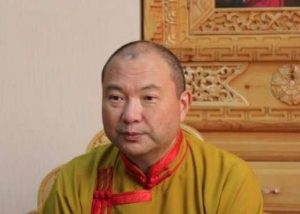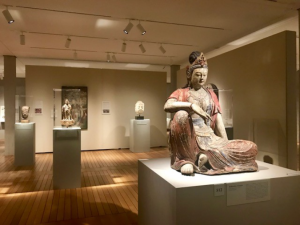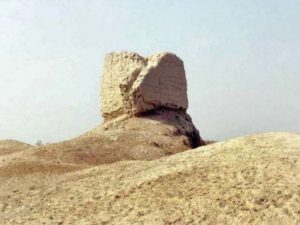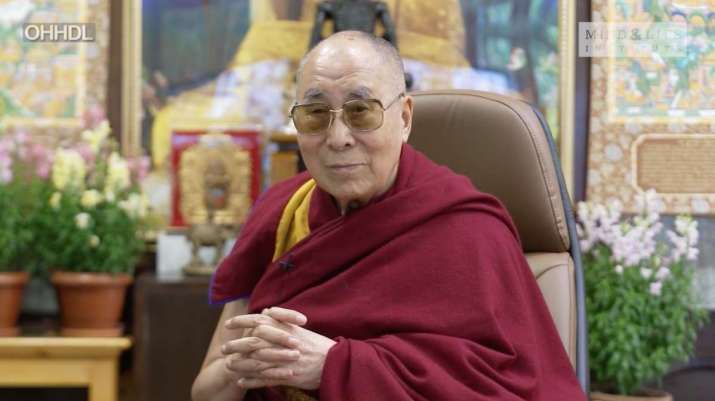
His Holiness the Dalai Lama recently conducted a live-streamed dialogue with Swedish environmental activist Greta Thunberg and leading climate scientists, titled “The Dalai Lama with Greta Thunberg and Leading Scientists: A Conversation on the Crisis of Climate Feedback Loops.” Casting a much-needed focus on human-induced climate change, the conversation highlighted scientific recognition of the most serious climate threats, some of the remaining avenues for addressing this increasingly imminent crisis, and the urgent need for education and raising global awareness.
The online meeting, live-streamed on 9 January, was hosted by the Mind & Life Institute. The speakers also included Susan Bauer-Wu, president of the Mind & Life Institute; Arctic ecologist Dr. Susan Natali; William Moomaw, Professor Emeritus of International Environmental Policy at the Fletcher School, Tufts University; and acting as moderator, Diana Chapman Walsh, President Emerita of Wellesley College, former Mind & Life Institute board member, and co-founder of the Council on the Uncertain Human Future.*
“Everybody wants a happy life. Not only we human beings, but animals and insects. Everyone is very much concerned about their own existence,” the Dalai Lama observed during his opening address. “The human brain is something very special, something remarkable, yet looking at our world today, human beings are the main troublemakers. Other animals in their daily lives just eat, sleep, and have sex, but we human beings have too much desire, always thinking about ‘us’ and ‘them.’. . . We human beings create a lot of good things, but at the same time we also create a lot of problems. . . . We think too much about ourselves, about our nation, our country, and family, thinking within very small circles. In reality, individual human lives depend on their communities. Today, all seven billion human beings are one human community. So the time has come to think about the whole of humanity . . . thinking in small circles is unrealistic. Now seven billion human beings depend on each other.”
Prof. Bauer-Wu announced that the online conversation also marked the official launch of a series of five short films, narrated by American actor Richard Gere and focused on the growing emergency of climate feedback loops, with the aim of inspiring people everywhere to learn, to understand, and to take action:
Climate Emergency: Feedback Loops
Greta Thunberg expressed appreciation to the Dalai Lama for his long-standing advocacy of sustainable environmental stewardship to mitigate the mulltiple impacts of climate change, and acknowledged their shared objective of protecting the planet from human excesses.
“However,” Thunberg observed, “there is a huge lack of awareness and a lack of discussion about the science. So I think we are desperate for an increase in spreading awareness, to tell people about what’s happening now because we are to a large extent unaware of what’s happening—most people I know or those I encounter haven’t even heard of feedback loops, tipping points, chain reactions, and so on. But they are crucial to understanding how the world works, how complex it is . . . that our actions have consequences. We have such a lack of respect for nature and for the environment . . . that we don’t even consider the consequences.”
Climate feedback loops are chain reactions or cycles of factors that impact the global climate, typically involving solar irradiance, greenhouse gas emissions, and airborne pollutants as primary drivers that are accelerating global warming. From the destruction of forests to the thawing of Arctic permafrost, human-induced climate change has set in motion feedback loops that, if unchecked, will rapidly lead to an irreversible tipping point. The implication of these self-perpetuating cycles is that simply reducing human emissions is insufficient as a solution as secondary mechanisms will continue to drive catastrophic climate and weather patterns.
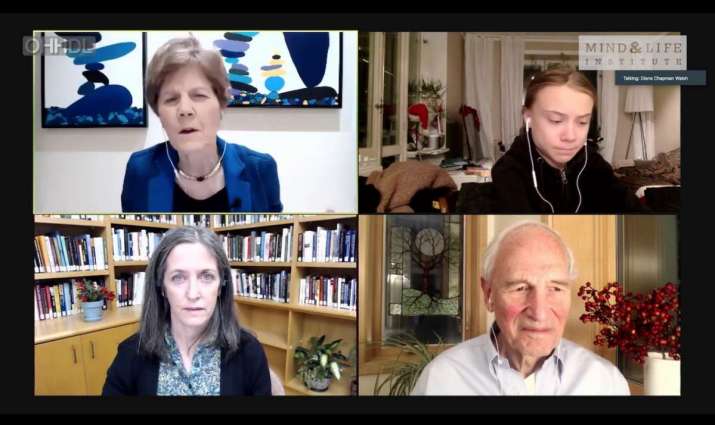
Prof. Natali shared troubling evidence of the impact of global warming in the Arctic, which has been heating up twice as fast as the rest of the planet, and where thawing tracts of permafrost have been transforming the landscape and releasing of large quantities of greenhouse gases. She also emphasized that only through concerted planet-wide action to substantially reduce fossil fuel emissions and protect forests, can the rate of warming in the Arctic, and likewise the Tibetan plateau, be meaningfully reduced.
Prof. Moomaw noted that while carbon dioxide emissions began to increase following the industrial revolution, half of all human-generated emissions have been released since the signing of the first international climate treaty in 1992. He therefore underscored the vital need to protect and to expand forests, marshes, grasslands, and all natural habitats, as the most effective means of ameliorating this growing climate threat—with even the potential to reverse warming cycles and create cooling feedback loops.
Despite the imminent threats and the mammoth undertaking before humanity in order to realize any kind of material impact in halting the cycles of climate change, the Dalai Lama offered a perspective of hope and optimism for the future:
“When I heard about this young girl from Sweden, I really felt: Oh, there is real hope from our younger generation who are really thinking about the environment and these things,” His Holiness said. “I think this is a time that generally in the world there is more materialistic thinking . . . [within] small circles: my nation, my community. Now it is quite rare [to meet people] who are talking in terms of the world and the environment. I really feel this is a sign of hope for the future. My generation is now ending, so the younger generation, really . . . all our hope depends on these young people.”
The Mind & Life Institute is a US-registered, non-profit organization founded in 1990. It is committed to building a scientific understanding of the mind as a way to reduce suffering, exploring the interface between science and Buddhism, and understanding the nature of reality. Its activities include convening international dialogues between scientists and contemplatives, publishing the outcomes, and setting up scientific research programs.
* Dalai Lama, Greta Thunberg, and Scientists to Discuss Crisis of Climate Feedback Loops (Buddhistdoor Global)
See more
A Conversation on the Crisis of Climate Feedback Loops (His Holiness the 14th Dalai Lama of Tibet)
The Dalai Lama with Greta Thunberg and Leading Scientists: A Conversation on the Crisis of Climate Feedback Loops (Mind & Life Institute)
The Dalai Lama In Conversation with Greta Thunberg and Leading Scientists (YouTube)
Climate Emergency: Feedback Loops
Council on the Uncertain Human Future










